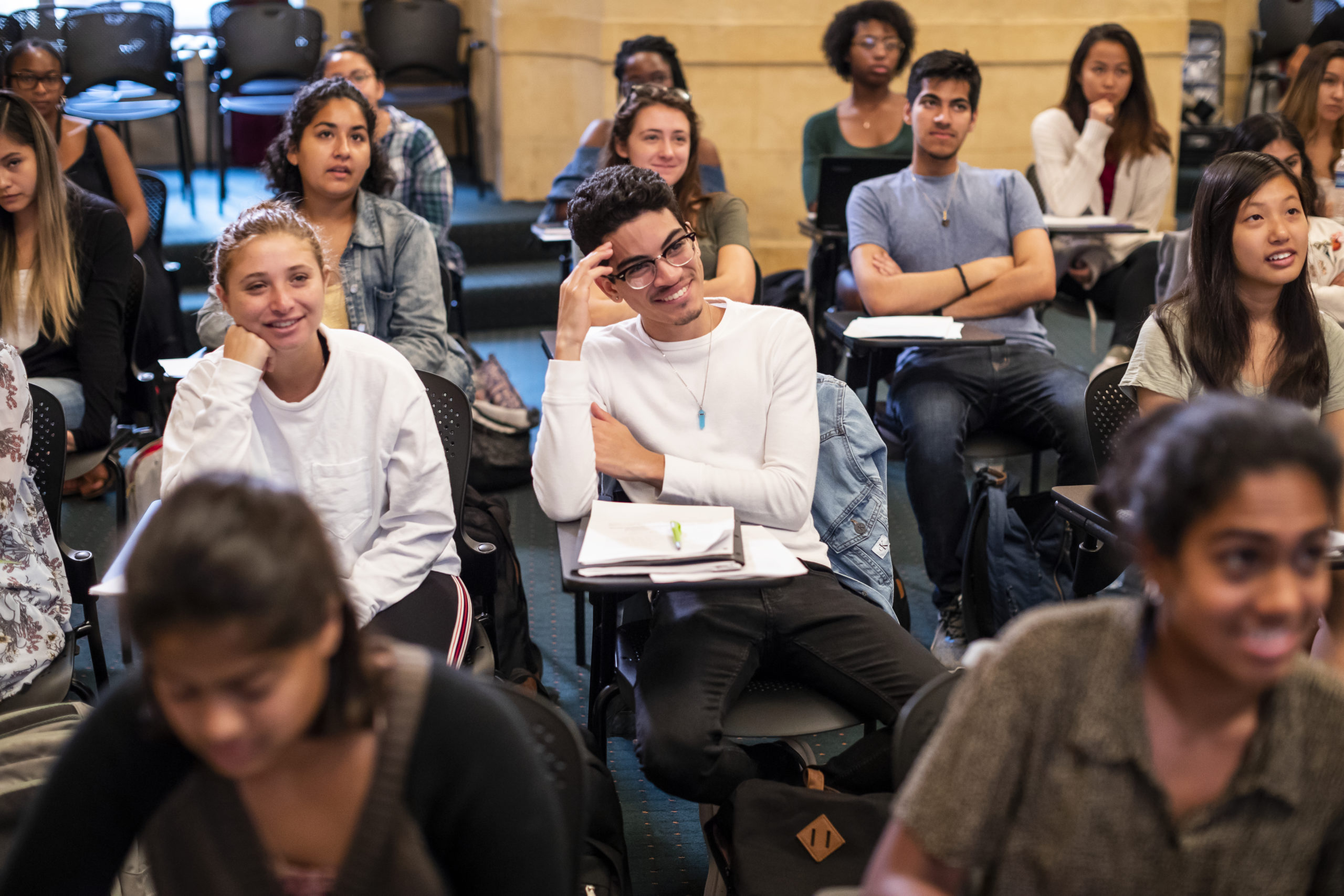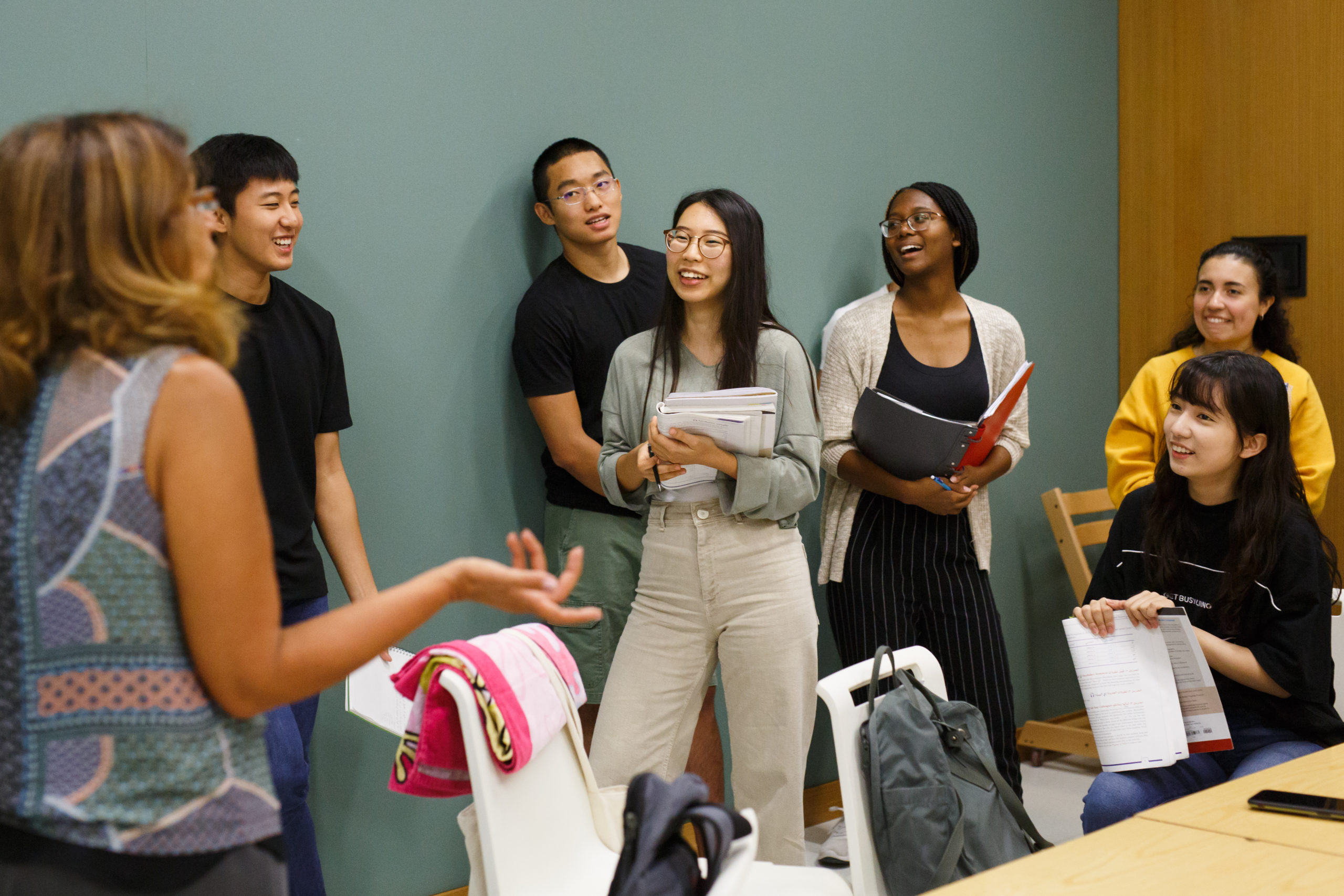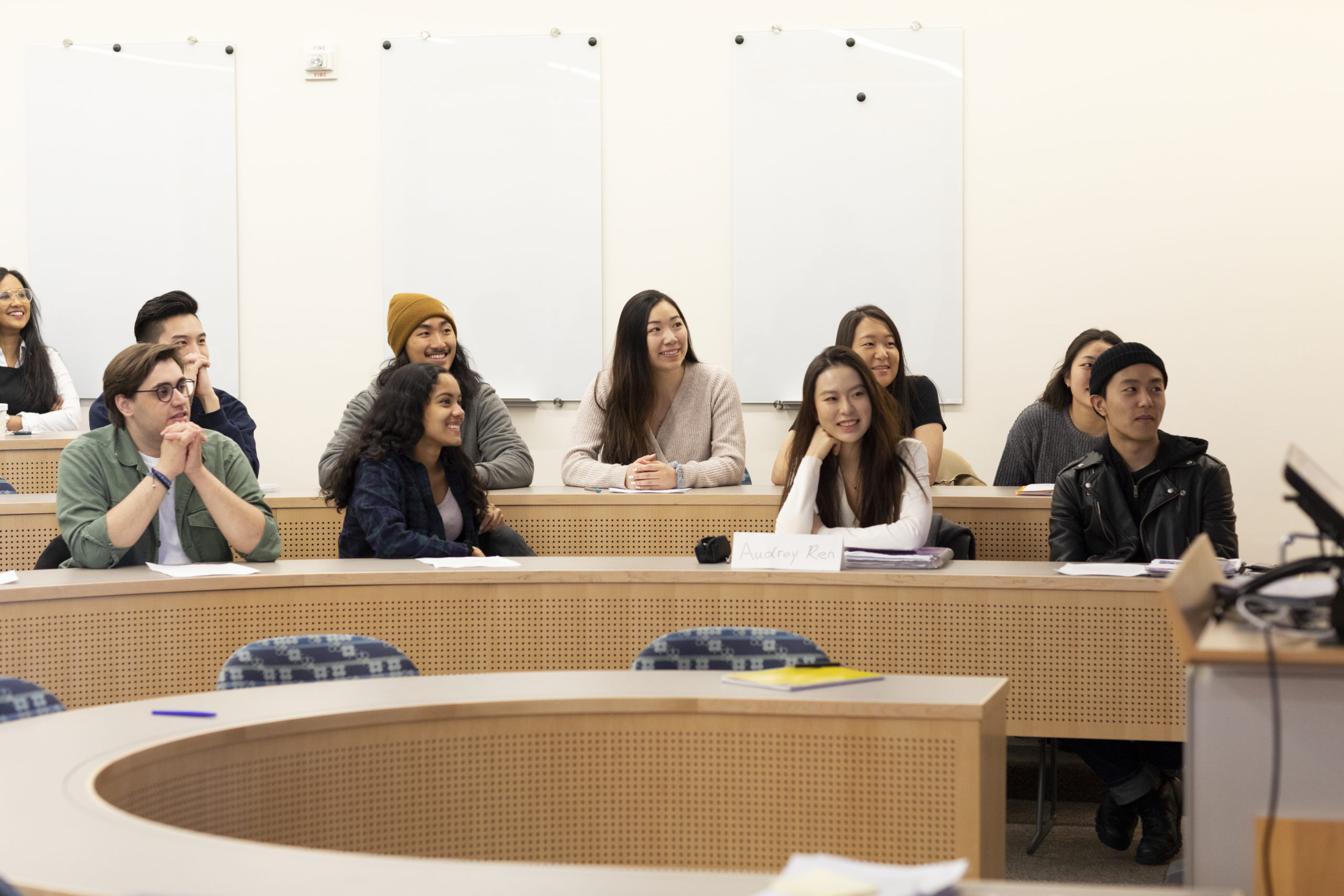What makes a club, sports team, or multinational business great? The answer often lies in somewhat intangible elements like leadership, relationships, culture, and motivations. In other words, people—and how they work together. At its core, every organization is a group of people. And Julianna Pillemer, an assistant professor at the NYU Stern School of Business, has spent more than a decade researching the ways people interact with one another at work. Pillemer teaches the course Management and Organizations, which is also one of 12 concentrations within the BS in Business program at NYU Stern. Her class has inspired and given students the skill set to reevaluate their daily interactions, ranging from conversations with family to job interviews.

Rooted in Research
“I have always been fascinated by understanding how people’s minds work and how they can successfully achieve things in groups and teams,” Pillemer says. She earned a bachelor’s degree in psychology and a PhD in management. And before teaching at NYU Stern, she worked as a research associate at Harvard Business School and the Center for Creative Leadership.
Pillemer’s research aims to uncover how relationships between individuals and groups help people flourish—or fail—at work. For example, simple maxims like “bring your whole self to work” can be complicated in practice. Her findings have been published in leading management journals and media outlets such as Forbes.

What Is an Organization?
As Pillemer points out, an organization isn’t just Google or the NAACP, Goldman Sachs or the Smithsonian Institution. It can also be a soccer team, a college, or even a family.
In the course, Pillemer teaches students to begin by examining organizations through a wide lens. They should inspect characteristics like culture, structure, and leadership strategies. Then, they should zoom in to understand groups and the dynamics that govern them: How can you motivate people to prioritize the group? How do you deal with conflict without entirely avoiding it?
The final, most focused lens is the individual aspect. “This includes understanding your own brain and what makes you tick. What motivates you? How do you make decisions? And how can you have the most impactful, fulfilling career for you?” Pillemer says.
“Any type of organization that you want to study is right here in New York. There’s really no better place to be when you’re learning about these things.”
—Professor Julianna Pillemer


Learning Happens by Doing
To drive these points, Pillemer’s teaching approach goes beyond readings and lectures. Like many classes at NYU Stern, students learn through discussions and real-world activities. If the topic is negotiation? Students pair up, engage in active negotiation with each other, and then discuss what worked and what didn’t. They also learn from guest speakers from various fields, including start-ups and private equity funds.
As part of students’ final projects for the class, they study a local or global organization in order to diagnose its management effectiveness. In doing so, they find themselves in a global hub of business, commerce, art, and culture. “Any type of organization that you want to study is right here in New York,” Pillemer says. “There’s really no better place to be when you’re learning about these things.”

Applications Beyond the Classroom
As students build a foundation for impactful future careers, they can practice the leadership concepts they learn in Management and Organizations in real-time, through their day-to-day interactions. “The aim of the course is to use research to help inform real problems that students will face in their lives as well as their work,” Pillemer says. “Every class session has some kind of concrete takeaway.”
Whether it’s a job or internship interview, a sensitive conversation with a roommate, or finding the motivation to finish a paper, Professor Pillemer’s class outfits students with skills they can apply throughout their lives.



